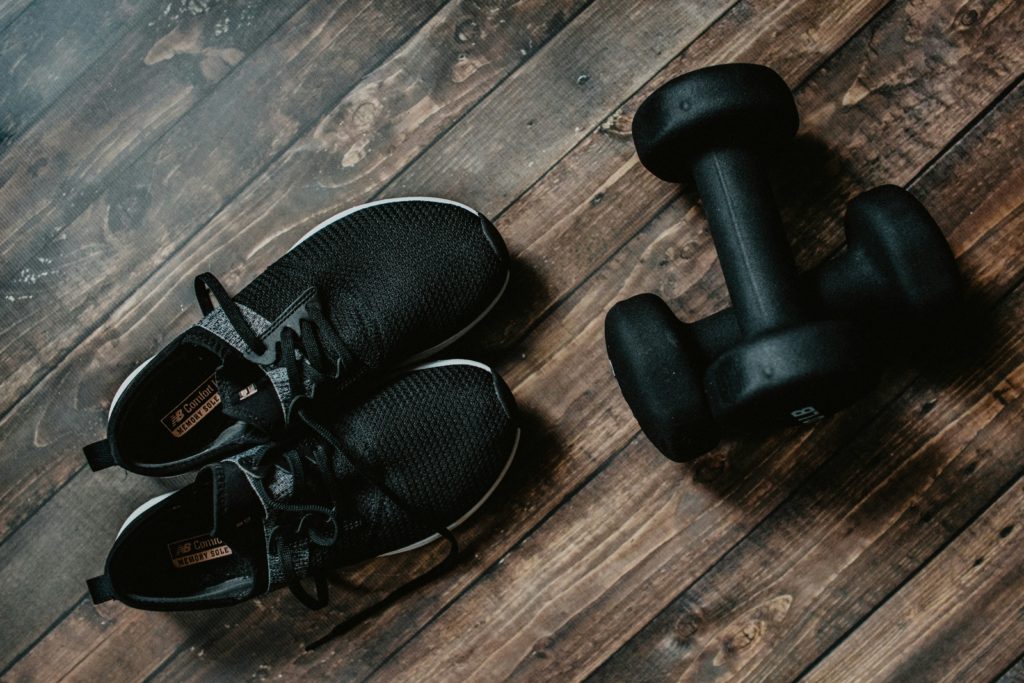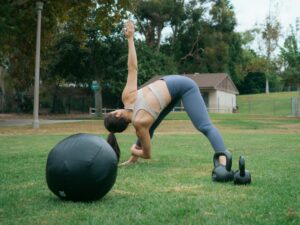5 Things That Are Completely Normal on a Fitness Journey – Challenges & How to Fix Them
Trying to improve wellness is an ongoing task in our daily lives. There will be ups and downs on this path. Here are some things that are completely normal on a fitness journey, yet we don’t talk about them enough.

By normalizing some of these common issues and occurrences, we are better equipped to deal with them and help others do the same. These are things that are completely normal on a fitness journey and can happen to anyone, from beginners to experts.
What is a Fitness Journey
A fitness journey encompasses physical and mental health, taking into consideration good daily habits to improve health and wellness. This includes exercising more, eating a nutritious diet, and taking care of your mental health.
Fitness is about the journey, not the destination. We can always strive to improve, so we should make sure to enjoy our progress. Well on this path, we may run into common issues, problems, or challenges. By talking about these things that are completely normal on a fitness journey, we can learn how to overcome, grow as a person, and improve.
5 Things That Are Completely Normal on a Fitness Journey
Here are 5 things that are completely normal on a fitness journey. There may be stressful situations, there may be issues, etc., but know that they are completely natural.
Many people will experience these things, and that does not make them any less than others. At any point in your fitness journey, from beginners to experts, you may experience these things. Some will get easier, some will simply be challenges you learn to deal with.
1. Feeling Tired and Unmotivated
There will be days, no matter who you are, when you feel tired and unmotivated. You could be a professional athlete, and there will be days that you will not want to get up and active. This is completely normal. It can happen for a variety of reasons. Maybe your sleep schedule has been hectic, maybe you drink alcohol the night before, or maybe you haven’t been eating enough to fuel your body properly. When we take care of ourselves and our physical and mental health by getting enough food and resting, we should experience fewer days of feeling tired and unmotivated. Our bodies are designed to move and we should want to move.
However, it can just be one of those days where you feel a little more down, even if your sleep and diet are perfect. How we deal with days where we feel unmotivated is what matters the most. Next time you feel tired and unmotivated, try showing up for your workout and giving about 60% to 70% of your effort. This way, you still get to move your body, while not exhausting yourself.
2. Being Bloated
Everyone can get bloated from time to time. This can be due to hormones, something you eat, or how you retain water in your body. Being bloated is normal. Some of us may feel the need to suck in, especially if you are a woman. This is not great as it can lead to body dysmorphia, eating disorders, and working out for the wrong reasons.
Some things you can do to decrease being bloated include eating the rainbow, increasing fiber in your diet, and eating more fermented foods to increase microbiota health. Remember, even if you have great gut health, being bloated is just something that occurs from time to time in some people. Personally, as someone who’s on the short side, a small meal is enough to make me look bloated, and that’s something I’ve accepted.
3. Having Body Fat
Unless you’re a bodybuilder getting ready for a competition, you will have body fat. This is normal and even healthy. Our goal shouldn’t be to severely reduce body fat. Body fat is your body having a reserve of energy just in case food becomes scarce. A healthy amount of body fat tends to be around 20 to 30% for women and 10 to 20% for men. This percentage increases as people become older.
Some people may feel self-conscious because they have abdominal fat or more fat in their arms. However, the way your body stores fat is determined by genetics. We can’t spot-treat fat. All those abdominal workouts aren’t going to reduce fat in your abs, they’ll just strengthen your core muscles a bit. Having fat is normal, having abs is largely due to genetics. In fact, some instances of a good six-pack in movies are attributed to having the actor be dehydrated to define the core more. I don’t know about you but that doesn’t sound healthy to me.
4. Taking a Break
Working out 3 to 5 times a week is great. Hitting the gym is an amazing hobby I’m glad to have started. However, sometimes we push ourselves to the point of breaking, which is not what a fitness journey is about. Taking a break when you need to take a break is something we need to normalize.
Even if it turns into a week-long break because you are on a trip or you just feel the need to rest, it is okay. You will not lose the muscle that you worked so hard to gain, nor will you lose all your cardiovascular benefits. Something to note is that you might feel a little bit weaker coming back to a workout after taking a week-long break or longer. If you were using 30 lb dumbbells, you might want to bring it down to 20 lb or 25 lb. This does not mean you got weaker, it simply means your body needs a day or two to adjust to strenuous activity again.
5. Feeling Weird After a Workout
Here is something that is not talked about often enough, though I have seen videos highlighting this experience. Sometimes, especially when you are weight training and push yourself through a particularly hard workout, you’ll feel weird after a workout.
It’s like someone pressed the snooze button on you. You might feel a little out of it, even as you hydrate well and eat. It’s just a weird sort of numbness that can sometimes hit after a hard workout. It’s part of the reason why I like to prepare meals. That way, after a hard workout, I have a meal I could heat up to get all my protein, even when my mind is blank and I feel like I’m running on fumes.
Bonus: Struggling with Hitting Protein Goals
To this day, I will struggle with getting enough protein. Yes, it’s easier, but I had bit the bullet and subjected myself to chicken breast and protein shakes. Luckily, I like chicken, and there are a million ways to prepare chicken in new and exciting recipes.
When you’re first starting, food items surprisingly have less protein than you think they do. An egg only has about 7 g of protein, which was highly surprising as they are a complete protein with all the amino acids needed. If you’re trying to get 150 g of protein a day, a couple of eggs is not going to do it for you.
Some life hacks to help you get the protein you need include adding cottage cheese to recipes, sprinkling whey protein into meals, eating protein bars, and drinking protein shakes. Just some easy ways to get those protein goals in. It becomes harder when you’re a vegetarian or vegan, so if you’re going to track something for meals, let it be your grams of protein. Here is your guide on how much protein you need, no matter where you are on your fitness journey.
The Takeaway
These are things that are completely normal on a fitness journey if they aren’t talked about enough. Online, we see the best parts of health and wellness, without seeing the struggle, sweat, and pain that can go into being on a fitness journey. While some of these may be considered challenges or issues, they can all be dealt with and handled well.
Remember that health comes from within. Eat nutritious food, exercise when you can, and take care of your mental health. Daily habits become the building blocks for emotional, mental, and physical health. Take care of your gut health too! Learn everything you need to know about gut microbiota today for free here.





